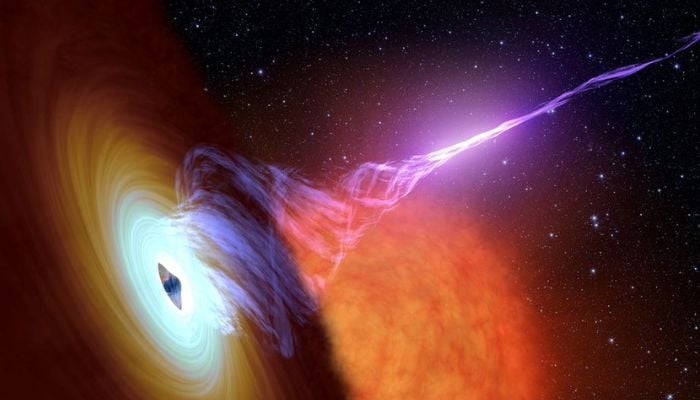'Like a beating heart': Astronomers pick radio signal from space
Astronomers have been unable to specify the location but believe that the source of the radio waves could be neutron stars
July 15, 2022

- Scientists pick radio signals from galaxy billions of light-years from Earth.
- Most radio bursts last milliseconds but these last up to three seconds.
- Data on bursts can help scientists find out speed at which universe is expanding.
Scientists at the Massachusetts Institute of Technology have been frequently receiving radio signals from a galaxy that is billions of light-years from Earth, reported NPR.
Astronomers have been unable to specify the location but believe that the source of the radio waves could be neutron stars.
Reportedly, most fast radio bursts (FRB) last just a few milliseconds. However, these repetitive signals last up to three seconds.
The MIT called the signal "similar to a beating heart" in a statement.
"Within this window, the team determined bursts of radio waves that repeat every 0.2 seconds in an explicit pattern, similar to a beating heart."
The statement mentioned that this was not the first instance of a signal being picked.
In December 2019, researchers at the Dominion Radio Astrophysical Observatory in British Columbia, Canada, too picked up signs of an FRB.
"This is the first time the signal itself is periodic," remarked Daniele Michilli, a postdoctoral researcher in the Massachusetts Institute of Technology's Kavli Institute for Astrophysics and Space Research.
The data on bursts, such as their frequency, can help scientists find out the speed at which the universe is expanding.
The announcement of radio signals comes after images from the James Webb Space Telescope that took humanity back to 13 billion years ago were released.











